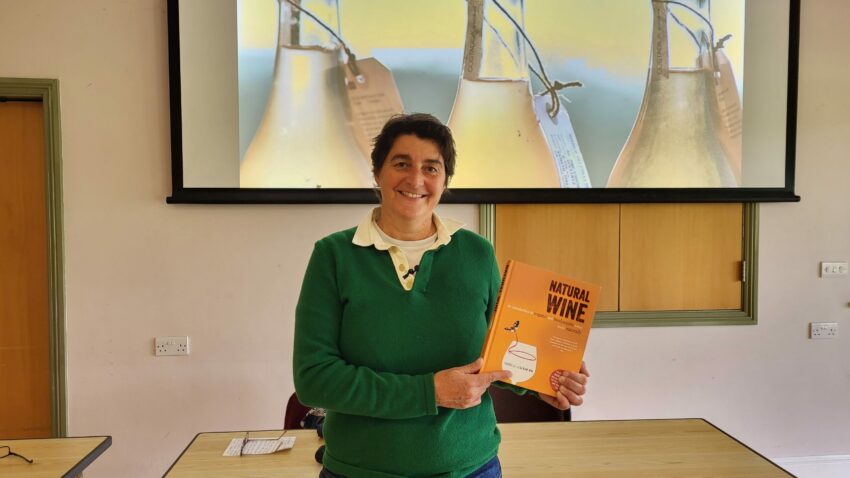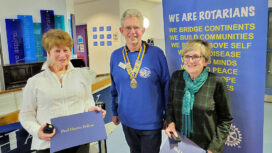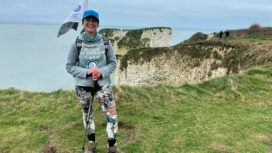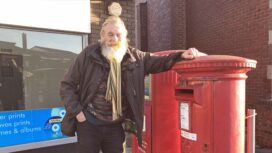A Studland woman who became one of only 400 Masters of Wine worldwide after running away from her family vineyard has raised a toast to a fresh start for the Purbeck University of the Third Age.
Purbeck U3A’s speaker events have been in virtual lockdown since the start of Covid, but it’s just held its first live meeting in two and a half years with Isabelle Legeron of Raw Wine as its guest speaker.
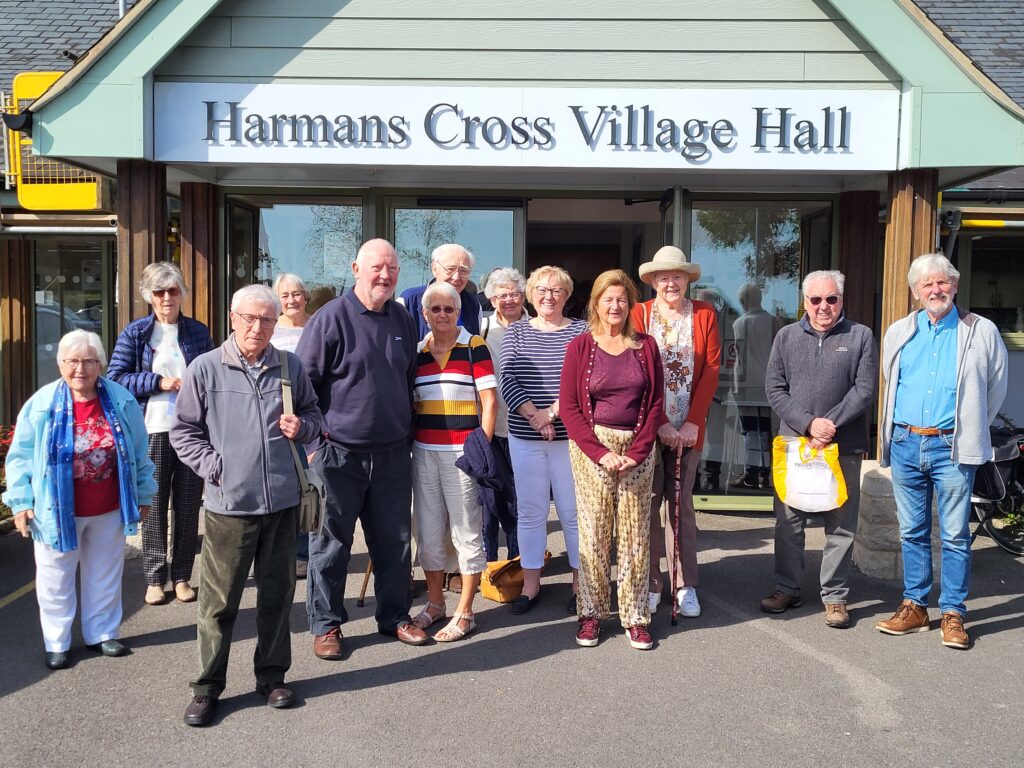
Virginia Lynch with some of the members of Purbeck U3A at their first in-person meeting for 30 months
MasterChef expert advocates truly natural wines
The new chair of Purbeck U3A, psychologist Virginia Lynch, said it was very exciting to be back after so long and introduced Isabelle to the meeting at Harmans Cross Village Hall on Thursday 22nd September 2022 as ‘one of the most innovative women in food and drink’.
Isabelle, who has appeared as a wine expert on such programmes as MasterChef, Sunday Brunch and BBC Breakfast, is a huge advocate of organic farming practices and truly natural wines.
During lockdown, from her new house in Studland, she set up an online shop for her Raw Wine website, which now offers the UK’s largest selection of the world’s best organic, biodynamic and natural wines.
Some 50 members of the group, who were delighted to be meeting up again after so long, were fascinated by her story of how she turned her back on the world of upmarket wine production to champion small independent vintners who refuse to use pesticides, additives or sulphites in their wine.
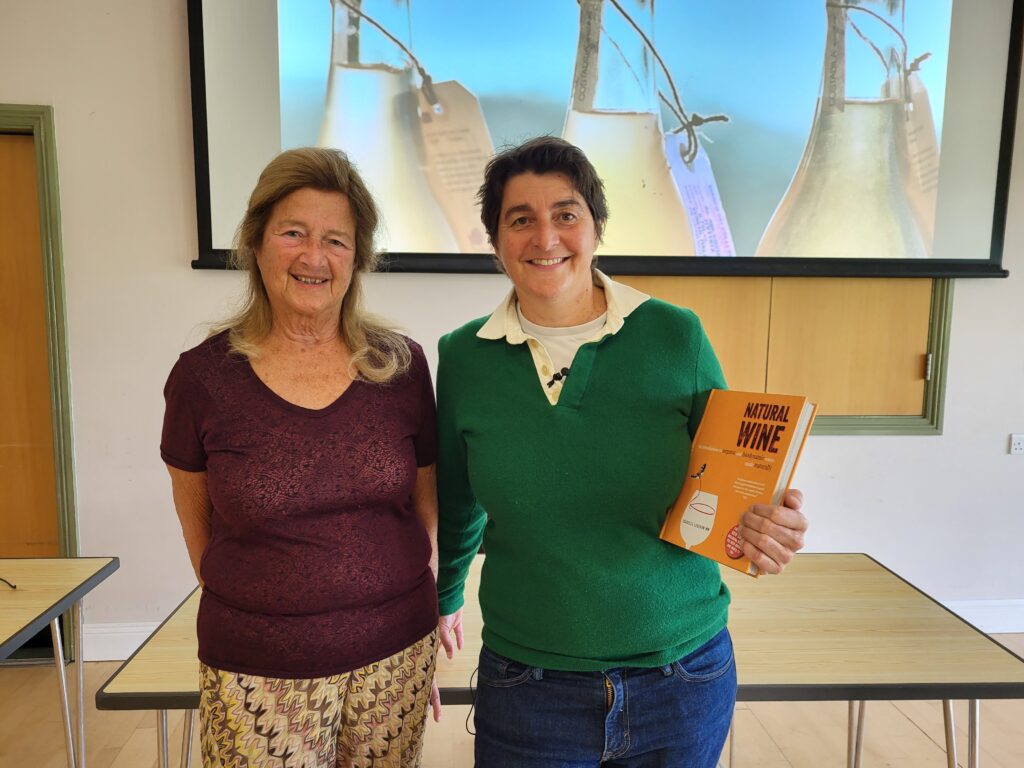
Virginia Lynch, new chair of Purbeck U3A (left), with guest speaker and wine expert Isabelle Legeron (right)
Vineyard in Cognac through six generations
Isabelle, who moved with her young daughter from London to Studland in September 2019 to improve their quality of life, told the group:
“My family has had a vineyard in the Cognac region going back through six generations. I was thrown into it at a very young age and was expected to help out in the vineyard and cellar all year round.
“As a kid, I hated it, and rebelled and ran off to university in London, but after a few years I realised how much I missed farming and wine was my way of reconnecting with that world.
“Once I started tasting wine I was hooked and several years later became a Master of Wine – the first French female ever to do so, and one of only about 400 in the world.
“Viticulture has developed an image that is very romantic where people harvest by hand and produce individual wines with unique tastes.
“But it is like any other industry where it is produced in vast quantities for a defined market at a defined price, always making more product for less money; most wine produced is completely mechanised and has never seen a human hand.
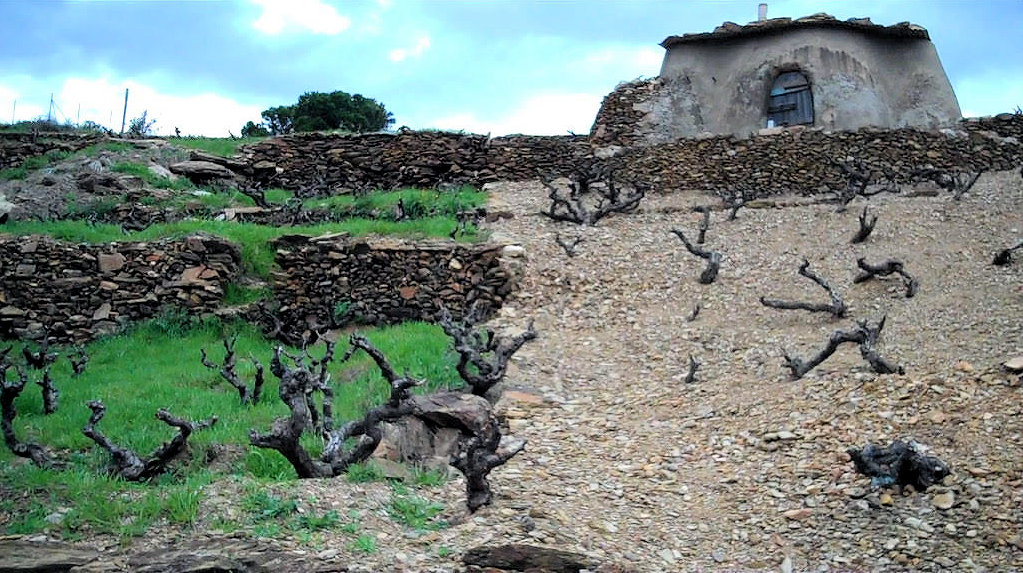
Two neighbouring vineyards in South Africa – guess which is farmed organically?
People who put their hands in real soil
Isabelle continued
“I didn’t want to be part of that process, I wanted to work with natural, living wine made in small quantities from vines that are cared for naturally on vineyards where the land is looked after organically.
“People said it was professional suicide as I was getting good job offers from some of the biggest wine producers, but for me, it was not a choice.
“I wanted to work with people who put their hands into real soil and cared for their vines in the old-fashioned way, who produced natural, living wines with real taste.”
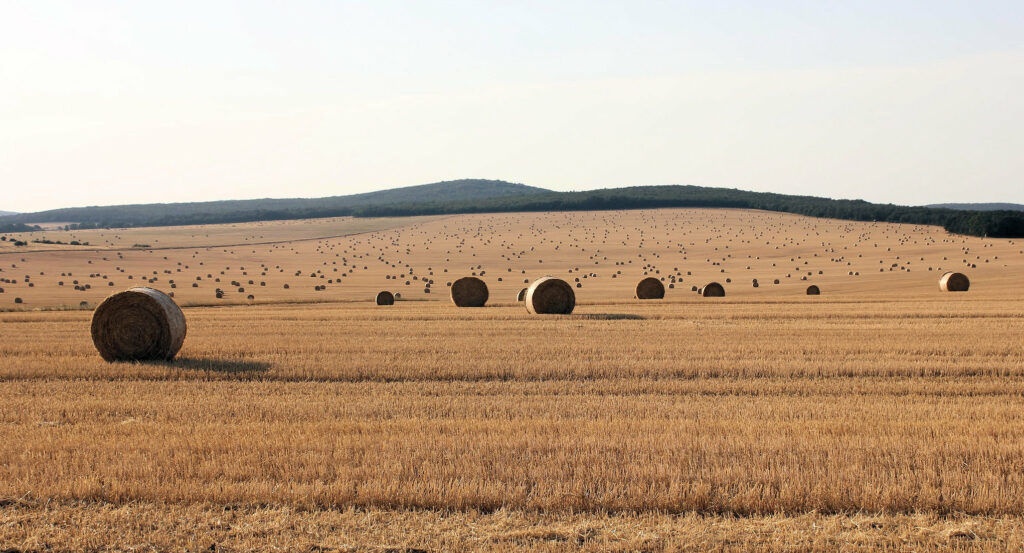
Intensive, chemical-enhanced farming practices have, according to Isabelle, led to landscapes like this
Wine making has changed beyond recognition
Wine was first produced about 8,000 years ago, probably in China, and continued to be made in very much the same way until after World War Two when fertilisers became readily available to increase crops.
From the 1970s onward, the introduction of larger farm machinery, irrigation, pesticides, sulphites, additives, laboratory grown yeasts, industrial production lines and a mass market for cheap wine has changed the industry beyond recognition.
The images of wines from a small vineyard in California may today hide the reality of mass plantations in a climate too hot to sustain vines naturally, where vines are irrigated continually on barren soils, grapes are harvested by machine early and frozen to bring on their sugars, and then artificially flavoured in huge factories.
Isabelle says her major issue is that no bottle of wine has a list of ingredients to tell you what is in it – such as isinglass (fish bladder) in champagne, or sulphides up to 400 parts per million, which have been linked to headaches, mouth ulcers, palpitations, skin problems and abdominal pain.
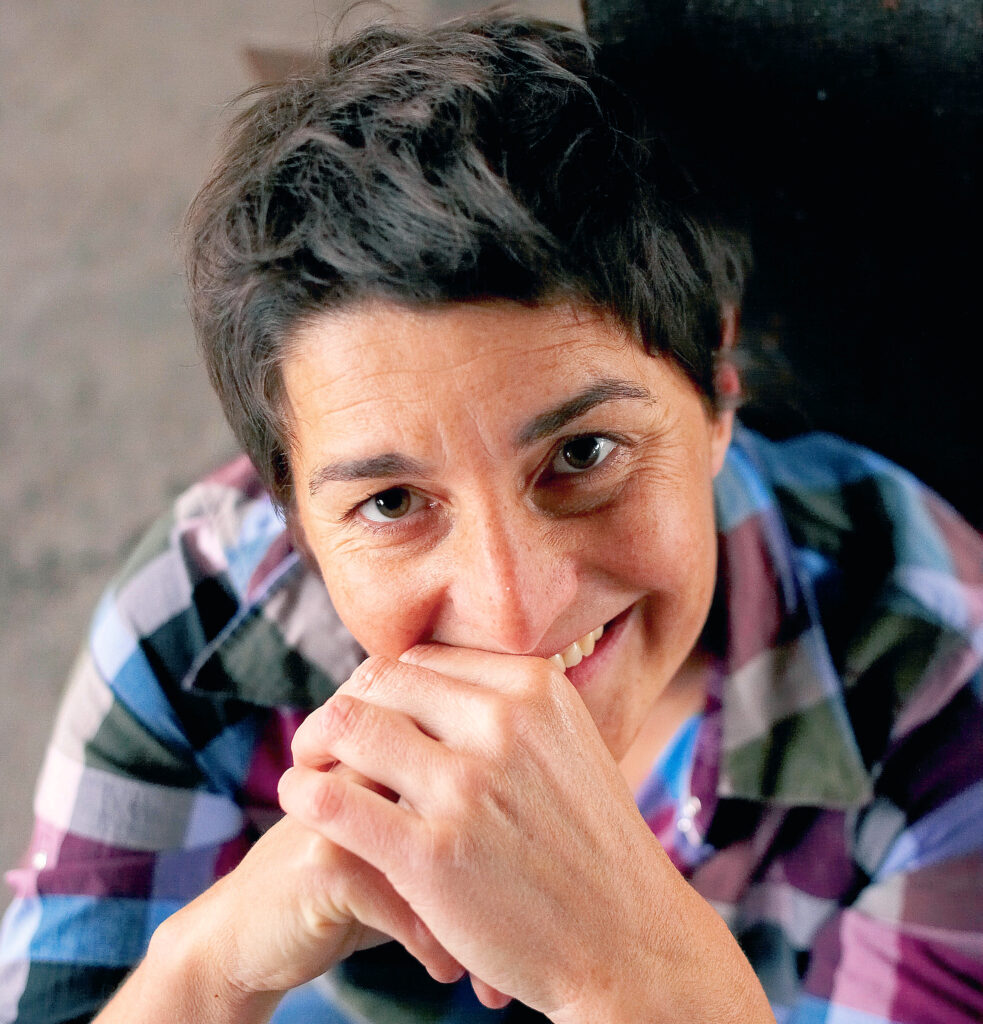
Isabelle Legeron is on a mission to make people aware of natural wine
“The best wine is pure wine, raw wine”
Isabelle said:
“I want to pick up a bottle of wine and be able to read what is in it, where it was farmed, how it was farmed, how much sulphite is in it, what percentage is additives and vitamins. I don’t know of any other food or drink that would get away with not declaring that.
“The best wine is pure wine, raw wine, that is grown in real soil with proper nutrients.”
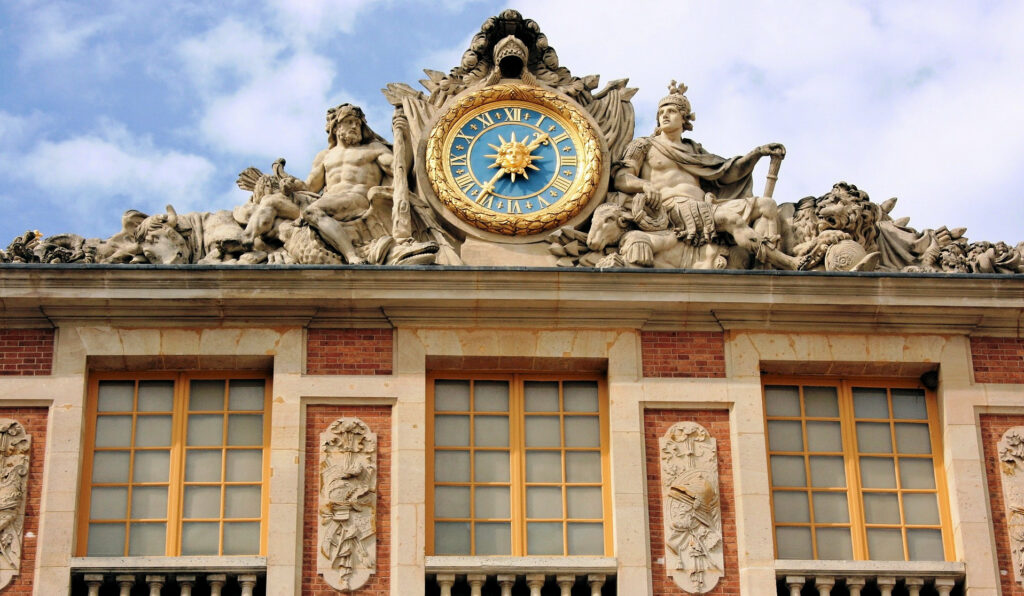
From Smedmore House in Kimmeridge, to the Palace of Versailles in Paris
Future talk on Sun King Louis XIV and Dorset
Purbeck U3A is now having in-person meetings with speakers once a month on Thursday mornings at Harmans Cross Village Hall, and also runs dozens of regular groups on a huge variety of skills, sports and subjects.
Future speakers include:
- Thursday 27th October 2022 – Former BBC Newsnight presenter Adam Raphael on the libel trial of Jeffrey Archer
- Thursday 24th November 2022 – Southampton University professor Harry Bryden on oceanography
- Thursday 26th January 2023 – Artistic director Deborah Paige on her life in theatre
- Thursday 24th February 2023 – Smedmore House owner, historian Philip Mansell on Louis XIV, England and Dorset
Sharing expertise and having fun
New chair Virginia Lynch said:
“I belonged to a thriving U3A group in Kent for many years and moved down to Studland village in this beautiful part of the world in August 2020 and quickly became part of village life.
“I joined the U3A here and although we couldn’t hold live meetings, there was a lot of online support through the organisation, so when they emailed members asking for a new chair, I was delighted to put my name forward.
“I have great admiration for the U3A, which taps into the lifetime of experience and skill that its members have, who then pass them on to everyone else through classes and groups.
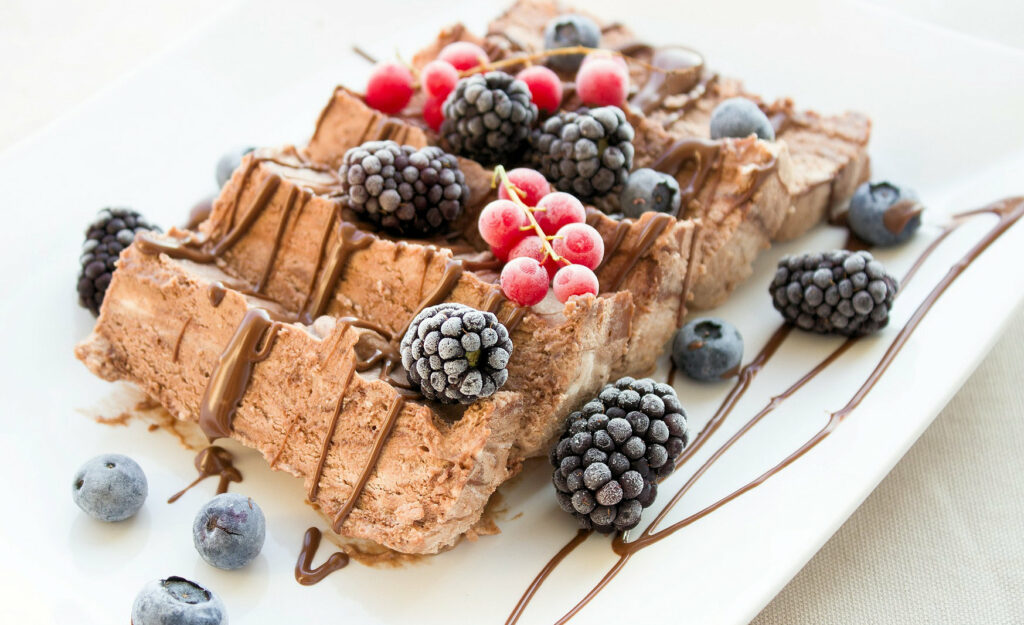
U3A groups include making – and sharing – desserts!
Groups from cycling for softies to making desserts
Virginia continued:
“So for just a small joining fee, members can get involved with groups on astronomy, art appreciation, book clubs, badminton, cycling for softies, gardening, languages, playing bridge, making desserts – we have about 50 different and very varied choices at present.
“Everyone is welcome to join – although U3A was set up in France for the retired or semi-retired as an alternative to university, in England there is no lower age limit and it has become more about people sharing their expertise and above all, making friends and having fun!”
Further information
- To get involved with Purbeck University of the Third Age or to find out more, go to its website
